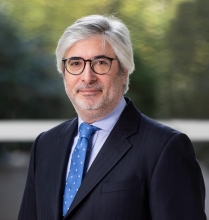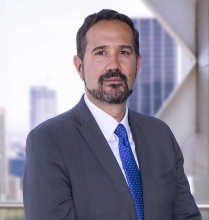International Arbitration Newsletter - June 2020 | Regional Overview: Asia Pacific
The most relevant Asia Pacific updates from the global International Arbitration and ADR practice group at Garrigues.
CHINA
Restaurateur ordered to pay security to stay enforcement in Hong Kong
The Hong Kong Court of First Instance has ordered Zhang Lan, the founder of a high-end restaurant chain South Beauty, to post US$ 57 million as security to suspend enforcement of two CIETAC awards in favor of La Dolce Vita Fine Dining, a subsidiary of Luxembourg-based CVC Capital Partners (CVC).
CVC brought the arbitration in 2015 against Zhang, her company South Beauty and a BVI holding company for alleged breaches of the sale agreement in 2014, under which it was obliged to purchase a nearly 83% stake in South Beauty.
In April 2019, the tribunal issued a majority award that granting US$ 50 million damages against Zhang and her BVI company for negligent misrepresentation and breach of the transaction agreement. Zhang challenged the award in the mainland Chinese courts alleging the constitution of the tribunal breached the arbitration agreement. A court hearing was held on 30 March 2020 and the decision is pending.
Hong Kong court granted enforcement of the award in July 2019, but Zhang argued that such ruling shall be overturned and the enforcement shall be suspended until the completion of the Chinese set-aside proceeding. Whereas it remains uncertain when the set-aside ruling will be issued by the Chinese court, the Hong Kong court ordered a suspension of enforcement for three-month on condition of payment of security amounted 40% of the total sum of the awards.
India
Enforcement of a 20-year-old ICC award granted
On 2 June 2020, the Indian Supreme Court rejected the appeal filed by Hindustan Copper Limited (HCL), a state entity of India, against the enforcement of an ICC award in favor of a US metals trader named Centrotrade, and granted enforcement of the award.
The dispute arose from the payments under an agreement concluded between HCL and Centrotrade for the sale of copper concentrate to the former for its plant in Khetri, Rajasthan. Unusually the agreement included a two-tier arbitration clause stipulating that in case either party was dissatisfied with a prior India-seated arbitration at the first stage, London-seated ICC arbitration can be adopted then. In 1999, after the issuance of award for no damages ruled by an arbitrator appointed by the Indian Council of Arbitration, Centrotrade commenced ICC arbitration. The ICC tribunal found in favour of Centrotrade and ordered HCL to pay over US$ 550,000 plus interest in 2001.
Centrotrade applied to enforce the ICC award before the Calcutta High Court, but the Court declined its application. Centrotrade appealed to the Indian Supreme Court. HCL argued that it failed to sufficiently present its case since the sole arbitrator in the ICC tribunal had refused to extend the filing deadline. However, the Court found that the sole arbitrator had extended the deadline for HCL’s submissions twice and he had fully considered the case HCL submitted even though it had been submitted out of time. The Court held that failure for submission by HCL was not due to external circumstances as required under case law and the award was “extremely fair” to HCL.
Nissan drops treaty claim against India
Nissan has reportedly agreed to drop an UNCITRAL claim against India, where it originally claim for US$ 660 million after being promised a US$ 238 million payment by the State government to settle the dispute over committed incentives to build a car factory. M C Sampath, as the Industries Minister of Tamil Nadu, confirmed the withdrawal of the arbitration by Nissan but declined to disclose the size of the settlement.
The claim relates to the alleged failure by the Indian government to payr around US$ 290 million by way of incentives, which had been promised for the car plant project between Nissan and its consortium partner Renault in 2008. Nissan filed its treaty claim in 2017, alleging breaches by the Indian government of the treaty’s fair and equitable treatment standard and umbrella clause. The Indian government challenged the jurisdiction of the tribunal, but the tribunal upheld jurisdiction in 2019.
MALAYSIA
Malaysian group wins claim against Chinese company
Beijing SkyOcean was ordered by a HKIAC tribunal to pay almost US$ 140 million to a subsidiary of Malaysian group Berjaya Land (BL Subsidiary). The guarantors of Beijing SkyOcean –Zhou Zheng and another company he owns, SkyOcean Group Holdings– were hold jointly and severally liable with Beijing SkyOcean for the amounts due.
The dispute relates to the purchase of the Berjaya (China) Great Mall Recreation Centre by Beijing SkyOcean from the BL Subsidiary in 2016 for approximately US$ 290 million. Half of the purchase price was paid in advance, while the rest was to be paid in 2017. Then upon the failure of Beijing SkyOcean to pay the second instalment, the BL Subsidiary initiated its claim against the Beijing SkyOcean in 2018.
SINGAPORE
Fraud award against Indian drug-maker upheld in Singapore
On 28 May 2020, the Singapore Court of Appeal dismissed the appeal filed by the Indian brothers Malyinder and Shivinder Mohan Singh and other former shareholders of India’s Ranbaxy Laboratories over a US$ 350 million ICC award that found them liable for fraud over the company’s sale to Japanese drug manufacturer Daiichi Sankyo.
Daiichi Sankyo filed the ICC arbitration in 2012, alleging that the sellers had concealed the nature and severity of ongoing investigations launched by US regulatory authorities against Ranbaxy during its acquisition of a controlling stake of Ranbaxy. In 2016, the tribunal issued an award in which all the sellers were jointly and severally held liable for the harm suffered by Daiichi Sankyo. The sellers applied to the Singapore High Court challenging the award. In 2018, the Delhi High Court enforced the award against the brothers Singh and the other sellers, while Singapore High Court rejected the application to withdraw the award.
The sellers then appealed to the Singapore Court of Appeal, claiming that the awarded damages and pre-award interest amounted to punitive or consequential damages that breached the exclusion clause in the arbitration agreement. The Singapore Court of Appeal dismissed the appeal holding that the methodology used by the tribunal majority to quantify Daiichi Sankyo’s losses was put forward by the sellers’ expert and was adopted by the sellers during the arbitration without any jurisdictional objection being made. The pre-award interest was awarded to take account of the period up until the signing of the 2008 transaction. The Court also dismissed the arguments that the fraud claim was time-barred under Indian law, holding it was an issue of admissibility to be determined by the tribunal other than a jurisdictional one, and the sellers failed to raise any objection during the arbitration.
Contacts




-
+52 55 1102 3570
-
+57 601 326 69 99


